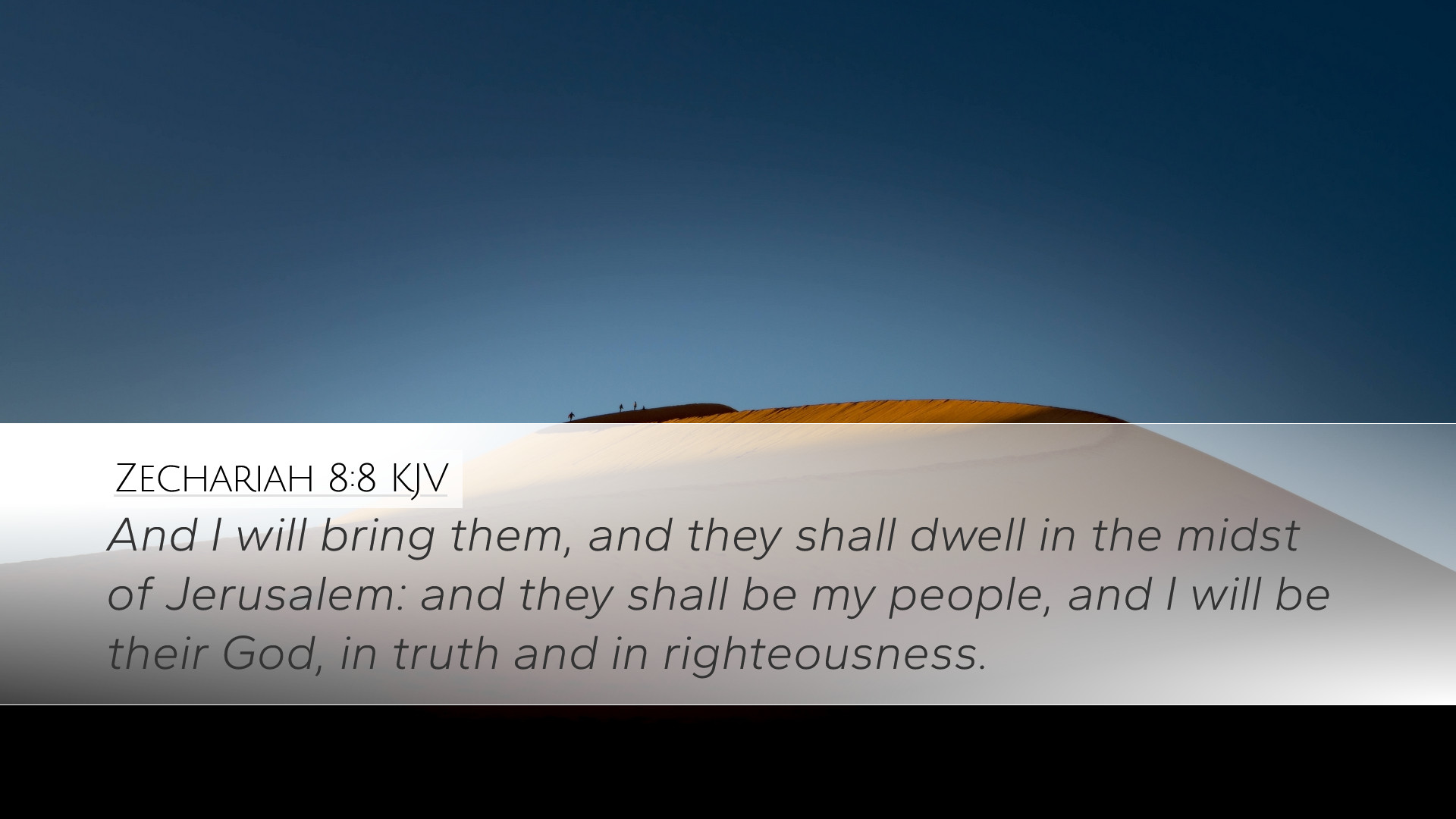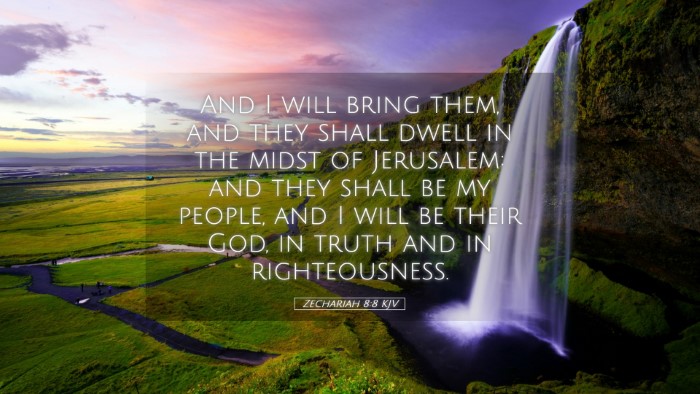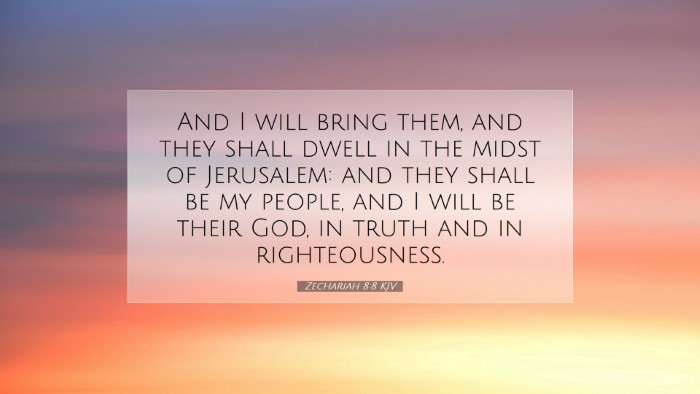Commentary on Zechariah 8:8
Verse Reference: Zechariah 8:8 - “And I will bring them, and they shall dwell in the midst of Jerusalem: and they shall be my people, and I will be their God, in truth and in righteousness.”
Introduction
This passage from Zechariah speaks to the profound promise of restoration and covenant between God and His people. It encapsulates themes of divine fidelity, the restoration of community, and the establishment of a righteous society under God’s sovereignty.
Historical Context
This prophecy occurs during a time when the Jewish people returned from Babylonian exile and are in the process of rebuilding their lives and the ruined temple in Jerusalem. Zechariah's words offer encouragement and hope, signaling a time of divine favor and restoration.
Matthew Henry's Analysis
Matthew Henry emphasizes the significance of God's promise to dwell among His people. He points out that this restoration is not merely physical but spiritual. Henry notes that God's intent is not just to bring His people back to Jerusalem but to form a covenantal relationship with them. He writes:
“God will bring them home to Jerusalem; and they shall dwell in the midst of it. They shall not only come to it, but they shall dwell in it. This signifies a settled state of peace and safety, which the people shall enjoy under God's protection.”
Henry also highlights the reciprocal nature of the relationship: “They shall be my people, and I will be their God.” This phrase underscores the essence of the covenant relationship, where both parties are engaged in a commitment to faithfulness.
Albert Barnes' Interpretation
Albert Barnes elaborates on the imagery of being God's people, explaining that this signifies a restoration not only of land but of identity and purpose. He states:
“This promise of God to be their God and for them to be His people indicates a renewal of the divine-human relationship, where the moral and spiritual obligations are based on truth and righteousness.”
Barnes further elaborates on the conditions of this relationship, emphasizing the importance of truth and righteousness. He asserts that these qualities reflect the character of God, calling for a similar character in His people as they experience this divine communion.
Adam Clarke's Observations
Adam Clarke provides a more practical application of this verse. He reflects on the communal aspect of God's promise, emphasizing how the restoration leads to societal rejuvenation. Clarke states:
“The essence of this promise involves social stabilization where justice and equity prevail in the community, signifying a moral and ethical renaissance.”
Clarke also draws attention to the inclusivity of God's promise, highlighting how it extends beyond personal blessing to collective well-being. He posits that the fulfillment of this promise would involve the entire community working towards righteousness and truth.
Theological Implications
The implications of Zechariah 8:8 extend into various theological realms, notably covenant theology, eschatology, and ecclesiology. The verse affirms central tenets of Christian faith regarding God's ongoing commitment to His people.
Covenantal Relationship
The covenantal promise signifies assurance of God's presence and guidance. It underlines the assurance to modern believers: that God desires to dwell among His people, reinforcing the notion of community in faith.
Eschatological Significance
Eschatologically, Zechariah's vision points to the ultimate restoration of God’s kingdom, where truth and righteousness prevail eternally. This foreshadows the New Jerusalem described in Revelation, wherein God’s people reside in perfect communion with Him.
Ecclesiological Reflection
From an ecclesiological standpoint, this verse invites the Church to reflect on its mission as a community characterized by truth and righteousness. The call to be God's people includes a responsibility to embrace social justice, moral integrity, and communal strength in faith.
Conclusion
Zechariah 8:8 serves as a rich text fostering hope, community, and righteousness among God's people. Through the insights of Matthew Henry, Albert Barnes, and Adam Clarke, it is evident that this promise transcends its historical context to provide timeless truths that challenge and empower contemporary believers.


